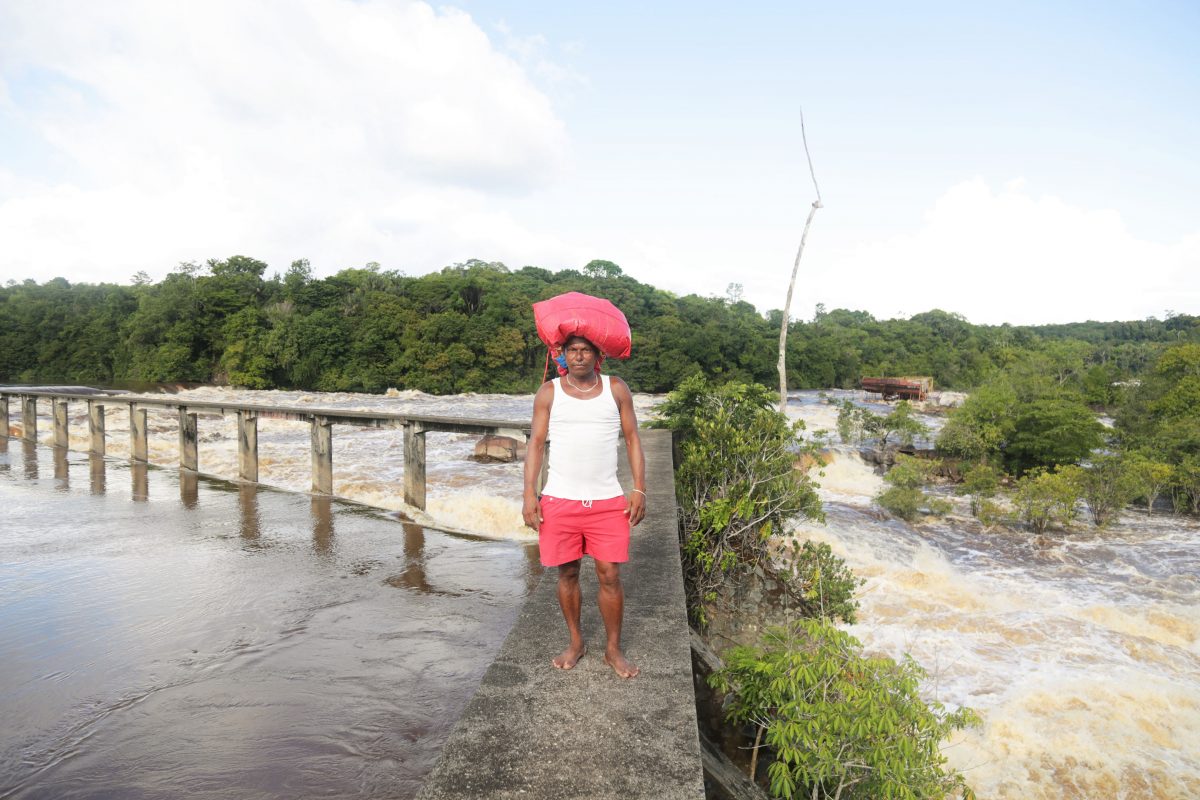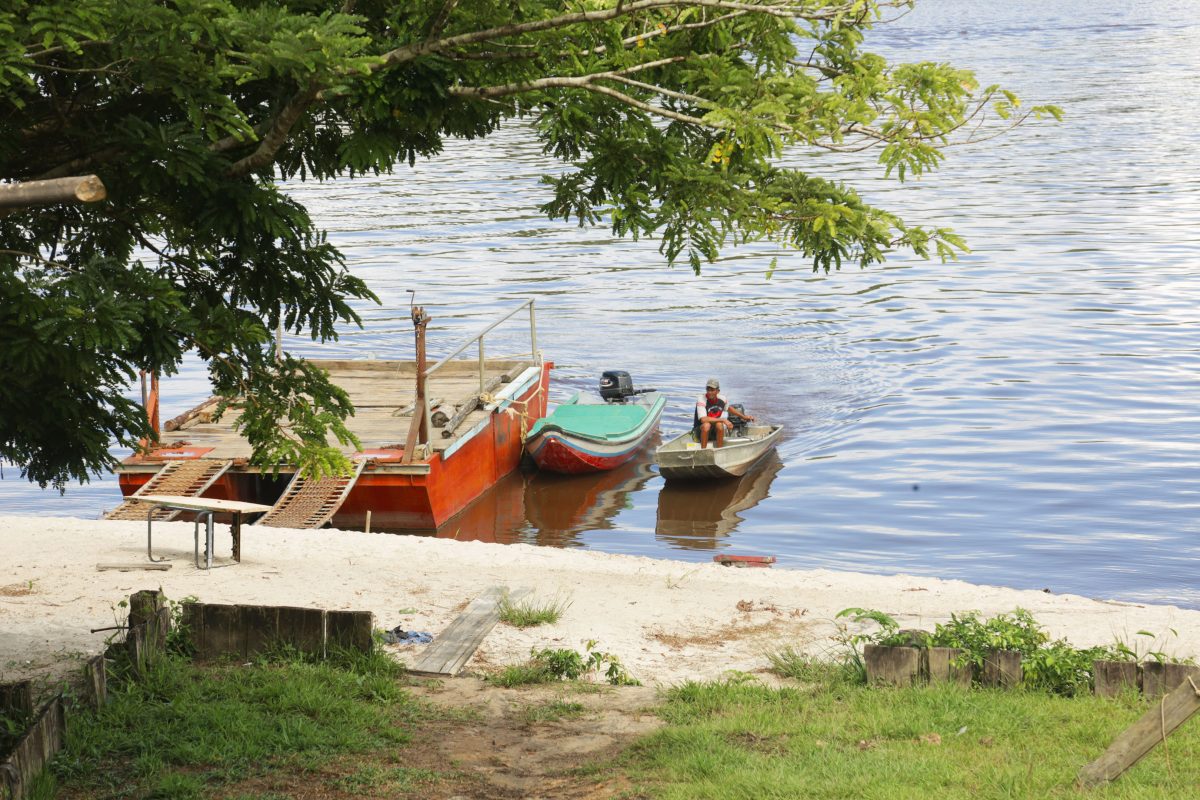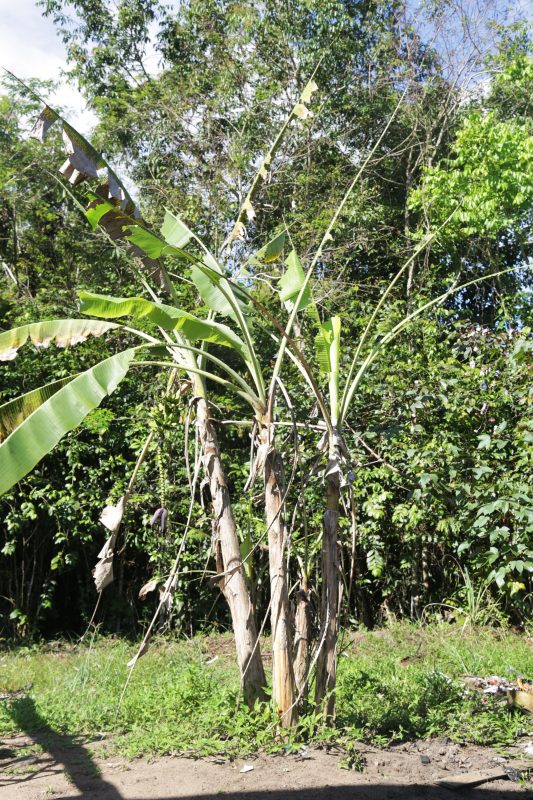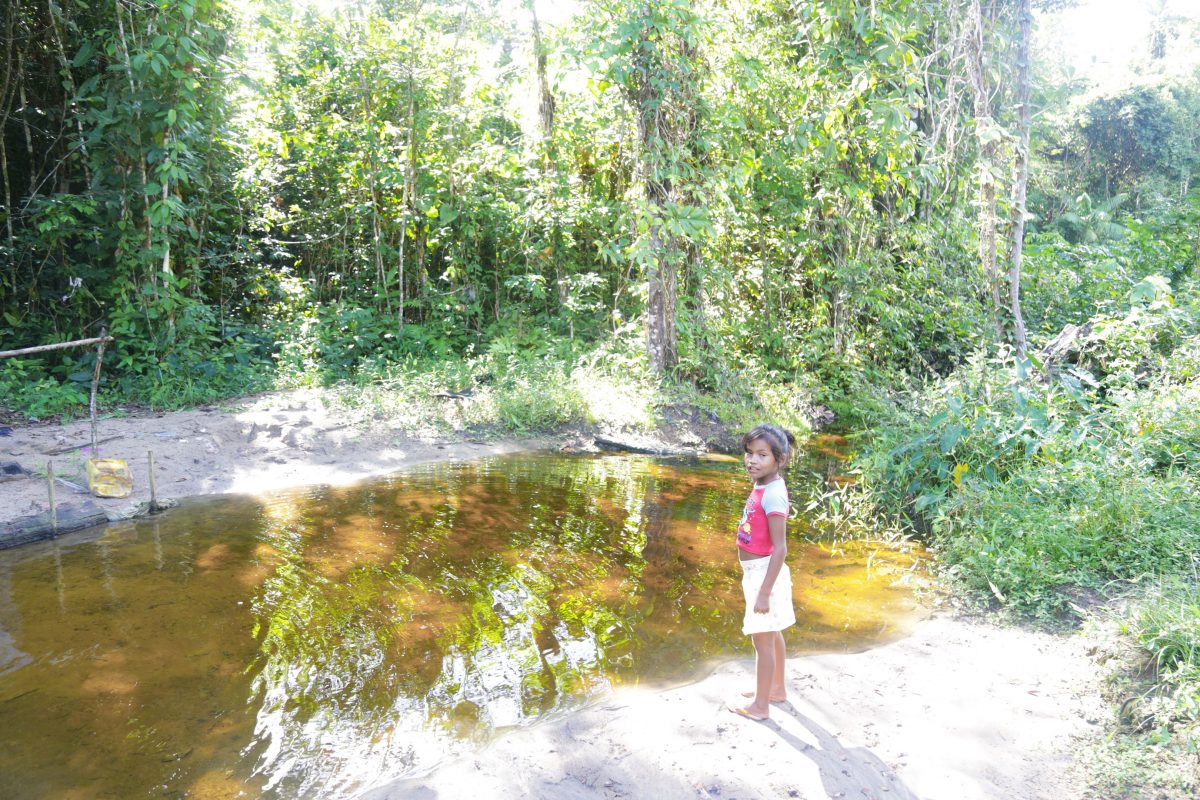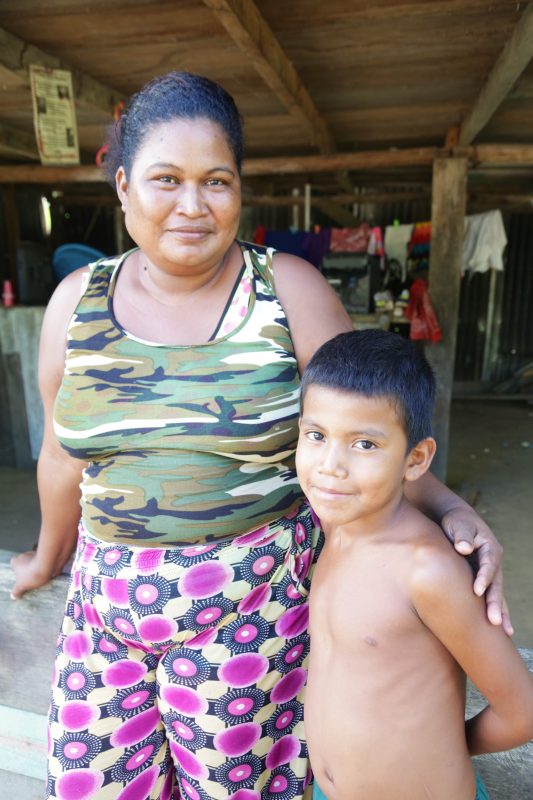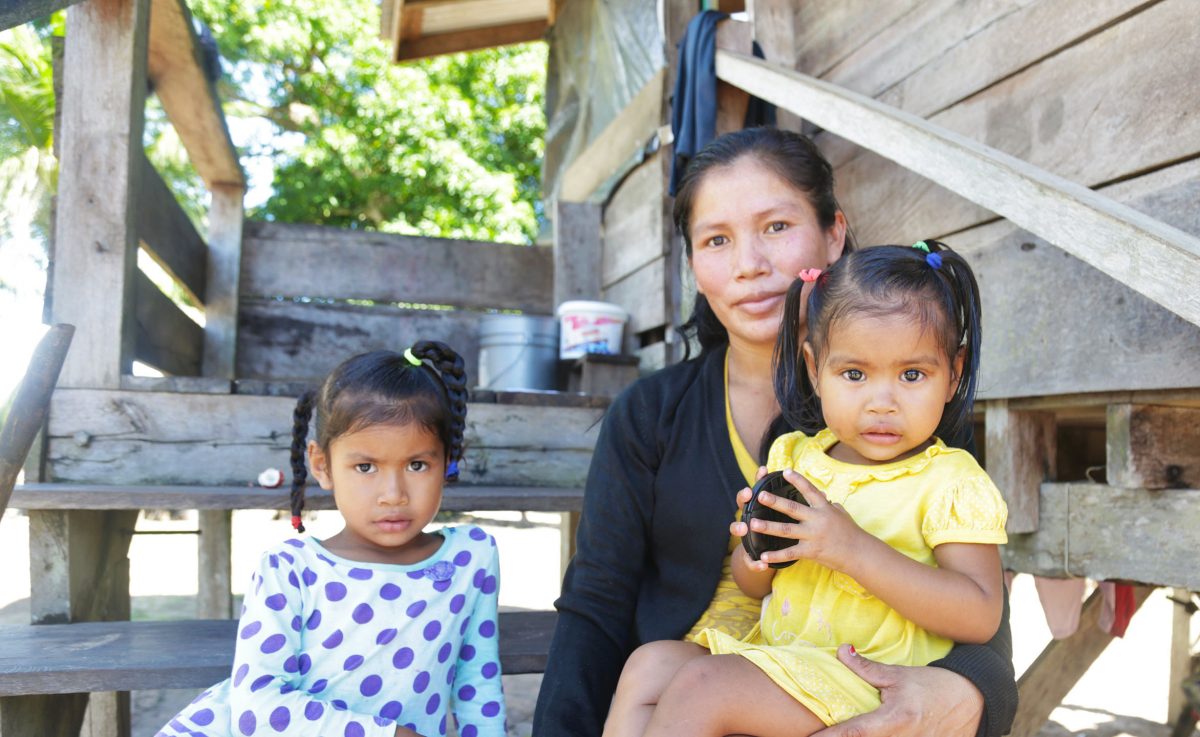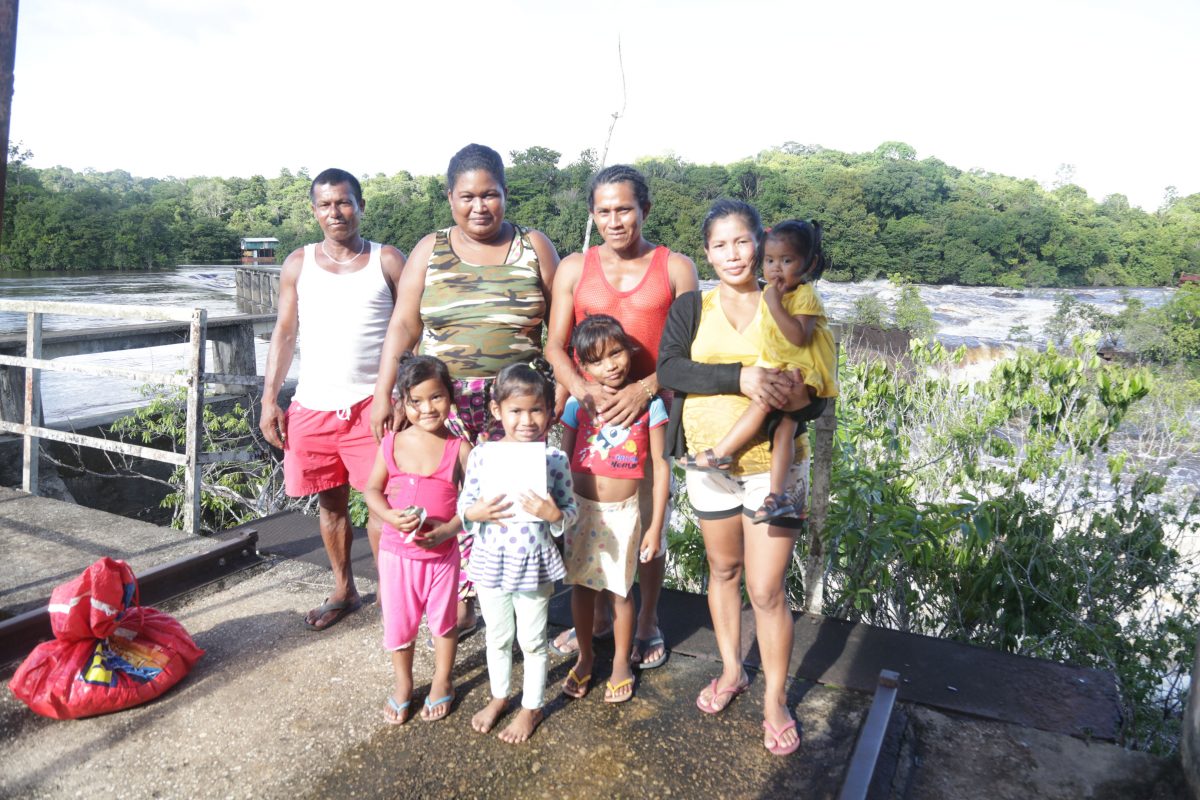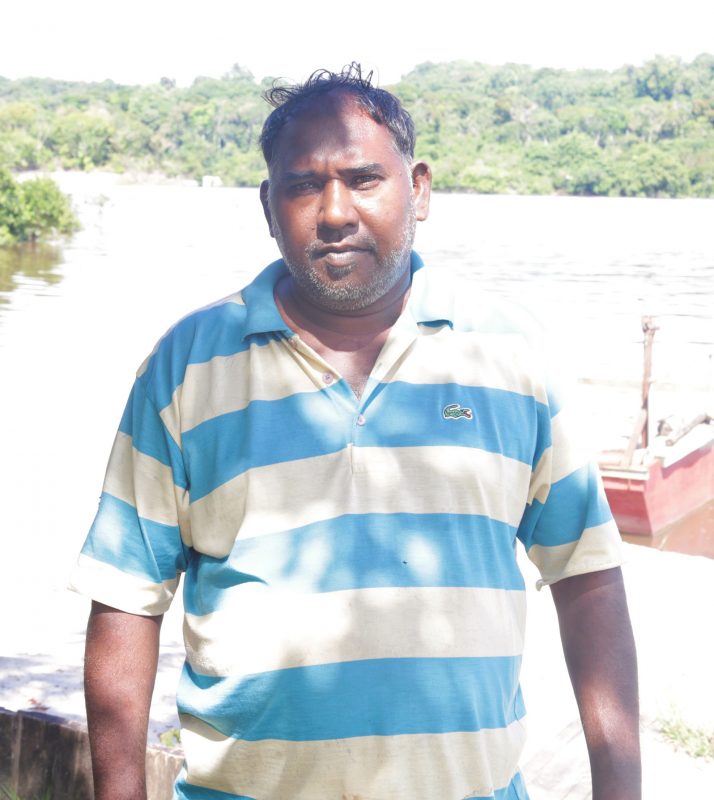El Paso is a community located in Region Eight (Potaro-Siparuni), west of the Tumatumari Falls, a scenic haven for its less than 200 residents, most of whom are indigenous people.
Because it is near the waterfall and many of its early settlers came from across the river at Tumatumari, El Paso is fondly called ‘Chumachumari’ or Chumatch’ for short.
The waterfall was where the Tumatumari Hydropower Station was set up in 1957 by British Guiana Goldfields Limited. The plant closed in 1959. In 1969, the Government of Guyana recommissioned the plant to be a power source for the Guyana National Service sites at Tumatumari and Konawaruk. This brought about the construction of an embankment dam, concrete overflow dam and a two-unit powerhouse that had a capacity of 1500 kW, using 2 x 750 kW Francis turbines. However, the hydropower station ceased all operations in the early 1980s. Older residents in the community boasted that decades ago when it was functioning, El Paso was the best lit community in Region Eight.
El Paso is said to be more than half a century old. It came into being when the people who were residing on the other side of the Potaro were forced to move because of the destruction of their habitat by miners.
“My mother said the first set of people who live here in El Paso come from across the river at Tumatumari,” Mary Anthony said.
“They used to live on a beach. It had a white beach. They had mining going on there but what used to happen really was that the beach used to flood so they had to move. Only two families live there now.
“I get to understand that the place was called El Paso after a place that was here. Mommy said the man had a big, long ranch house and name it El Paso. He live here a long time but according to what I hear is that he belongs to Brazil. His son is Cornel Edwards from Micobie [a resident who was interviewed by this newspaper].”
The woman said that while El Paso is a beautiful place to live, the cost of living is very high. For example, she said, a small bottle of Soya cooking oil costs $800, a small bag of white rice is $2,500 and a small bag of brown rice $3,000. Chicken sells at $700 a pound and Banga Mary fish, $1,000 for a pound and a half. To make things easier on the family, Anthony’s husband, like many other men in the village, go fishing in the river. They catch catfish which they call tiger fish because of the colour, Cassi, Larima, Cabidel, Wyara and Pirai.
Transportation is also expensive. To travel from El Paso to Mahdia return, a vehicle costs $25,000.
When she is not taken up with seeing to children and chores, Anthony spends her time in her kitchen garden though a lot of it is spent battling Acoushi (leafcutter) ants. She pointed out what was left of her banana tree after the Acoushi ants had a ball with it; still standing tall the tree looked more like a jagged skeletal frame. In her garden she showed off karila and a few other plants that she had fenced with aluminium then put bat dung all around the aluminium fence to ward off the destructive insects. That seemed to be working, the woman had said, because the plants were still standing.
Asked about jaguars, Anthony replied, “Whooo, day before yesterday, one run across right here.” One of her main concerns is access to water. El Paso depends on the creek for water, but it is several minutes away. Anthony said that she always has to keep an eye out for her children so that they do not go to the creek alone, but being children, they would sneak off when she is not looking. Asked if she was worried that they might drown, she said no because the creek was shallow. What she feared was a jaguar or kanaima snatching them.
Anthony said she washes and bathes at the creek and also gets her drinking water there. She said she and her family prefer the water from the creek as it does not make them sick, while the rainwater gives them diarrhoea. El Paso has been waiting for access to potable water for a long time. The woman said that sometime last year there were talks again about the project, which, according to government officials, will be done this year.
She was speaking as we walked to the creek. Just as she was talking about how dangerous it could be going to the creek alone and possibly being dragged off by a jaguar or a kanaima, we were startled by a noise behind us. However, it turned out to be Anthony’s daughter, Leah, who had been following a little distance behind and was trying to catch up with us. Along the way, sun bees loudly welcomed us, and monkeys screeched from somewhere in the trees. The creek had just a little water, not enough to swim or wade in, but it was running.
Relating a story about kanaimas, Anthony said, “They does trap you and put you to sleep and then carry you away…
“It had one man, I don’t know what was the problem with he and my uncle. I see for myself; I was ten years old then. Them two scramble up, the man had a knife on he and when me uncle throw he down, he [her uncle] take away the knife from he, break it and shy it and tell he, ‘you mustn’t fight with knife’. That’s all I hear me uncle tell he. Then he get up and he shake me uncle hand and said, ‘you win, you win’ and then when me uncle gone inside the shop, he said, ‘you win now but you gon see later what gon happen to you’. That’s all he say but me uncle didn’t hear because me uncle did high. So, the fight done for the day. The man, he used to come by we granny. He used to call she mommy. She had she kitchen like this, she never had stove and so; was only fireside. She like she fireside. Sometimes she used to make she tuma pot and she used to call he and give he cassiri and so.
“Me aunty, she baby was 11 months and a day like yesterday was she [her aunt’s] birthday and she celebrate, and she dance up. So, she left the baby sleeping and me uncle he did drink and was high, so he put she down and she sleep. Me auntie gone to the creek. The same night when she come back the baby start to get fever, then the next day whole day she had fever and in the night she died. When they check, they see a handprint on she and three stripes on she back that was black and blue. Is when they bring she to the creek to bathe she after she die, we see this thing. We say it had to be the man my uncle had the fight with. My uncle had big size; he get fine, fine.
“They say them [kanaimas] does do some taling. Taling is some spell that them know in them dialect that they would say and get you sick. The man [the kanaima] still alive. He live at Mahdia side. I dream he the other night.
“Eight years ago, I was sick for seven months straight. I did see the man around that time and people had say is he did do me. I did get to hear back that me first children father had tell he to kill me and to carry away me children but nothing happen to my children.”
Anthony said to get better she went to a see-far lady who told her it was the man who made her sick. The woman treated her, and she felt better. Recently she fell sick again but this time she went to the Universal Church in Georgetown, she said, and that helped.
Asked what she wished to see improve in her community, Anthony said that in El Paso there is nothing for the women to do. “I don’t know what to say. Here, El Paso, this place is the last, last days, the government does check on it. The last time they say they got $5 million for we here and $5 million for Micobie for a project. We had planned to either do a fuel bond or buy a bus or get a snackette; everybody had their own proposals. When they come in now, they say we are not ready. They say we need to get so much signatures. I believe if you got something to give the village, as they had visited, they should have said, man watch, next week time we gon come back and this is how to do it. But them ain’t showing us anything. They’re only telling us that we are not ready when they can show us what to do. But them ignorant and them just take back the $5 million and they gone back. We form a CDC [Community Development Committee] the other day. My mom is the RC [Regional Councillor].”
A heavily pregnant Monoritta Marcier was sweeping her yard in the scorching sun while her two young daughters looked on. “I’m not really from here,” she said. “I’m from Annai. I only visit Annai now but here is so nice. It has a falls here. You could go fishing when you don’t have anything to eat, or you can go hunting.”
She had travelled to the area in search of a job some years ago and got one waiting tables at a Chinese restaurant at Tumatumari junction. That was where she met her husband, who took her to live with him at the settlement.
When she has to go to the hospital, Marcier has to hire a cruiser at a cost of $30,000, return. Sometimes, to assist her husband financially, she cooks in the mining areas.
Marcier shared that she and her husband had a son who was their first child. But she was infected with Chikungunya while she was pregnant, and the virus was transmitted to him. He was born with hydrocephalus, the build-up of fluid in the brain’s cavities that results in increased pressure inside of the skull. The child had four operations and then developed meningitis. He lived for three years and died two years ago. During the time of his illness Marcier had moved back to Annai so she could seek medical attention for him at Lethem and at a hospital in Brazil.
Asked whether she knew the gender of the baby she was carrying, the enthusiastic mother said she had not yet done an ultrasound, but was excited that it could be a boy as elders in the community had said so based on the shape of her belly.
While the place is beautiful, not all of the neighbours are friendly she pointed out, but she managed to get along with them. However, time and time again, she said, there would be disputes over the land she lives on. She did not elaborate.
Marcier believes the people of Annai are more welcoming and wishes she could take her family back there but at the moment her husband mines in the area and with jobs not very easy to come by in either El Paso or Annai, he has to stay where he is for the time being in order to provide for his growing family.
Down below the Tumatumari Falls where the water foams, just off the river is a little shop that provides groceries and fuel for the residents and miners. Ramkissoon Christianpaul lives there, at the foot of a hill a short distance away from the populated settlement. There are about 30 houses around this tiny hill, but trees block most of them from view.
Christianpaul hails from Montrose, East Coast Demerara. He is a shopkeeper who does a bit of mining from time to time. He has always been business-oriented, and it was a trip to this area that led to him opening his shop five years ago. At first, he drove around selling vegetables, meat and fish. While traversing the area, he happened on the site and realising its beauty among the trees, right near a hill and at the bottom of the falls, he set out to make it his second home. He travels back and forth between El Paso and Montrose. At time of my visit, his last trip back to the East Coast was eight months before.
The businessman shared that he was thinking about opening a resort in the area. Asked about how he planned on selling the idea of vacationing at the resort to visitors when residents were saying that the water is polluted from mining, the man said that once he had nets put in, pollution would not be something to worry about. “Mercury don’t be on the water, he claimed. “It’s heavy so if it drops on the sand, it starts to sink and go down.”
Meanwhile, Mary Anthony’s husband, who had shied away from an interview, had something to say on mercury in the water. The man shared that because of the pollution of the river by the chemical element, the fish population is affected, and people are also getting sick.
Christianpaul, however, said that his move also had to do with the country signing a contract with ExxonMobil. He said drilling for oil will have an effect on climate change, leading to major disasters. With Region Four (Demerara-Mahaica) being situated in the low coastal plain, if flooding were to result it would be disastrous. The man is certain that where he lives now is his best bet when it comes to escaping floods.
But living in El Paso is not easy for him, he said, because he is not of indigenous heritage. He believes he would be more accepted if he had married an Amerindian. So, although he provides a service in the area, the man and his wife are considered outsiders.
“I find some persons who believe I should have stayed on the coast. They believe that I’m here to take away their resources or their land. Aside from providing a service in the area, I am also providing jobs for some of the persons here. Currently, I have 12 persons employed with me; at one time I had about 50 persons. They were doing mainly mining. I have three dredges working.”
Five years ago, he said, there was “a reasonable road” and he could have gone for a drive in his truck whenever he needed. But given the current condition of the road, he no longer drives. Every now and again he starts up his vehicle to ensure it is still working but that is as much as he can do. Using the road while it is so bad, he said, would only see him incur additional expense.
During my visit, there was road work being done. The shopkeeper said he was eagerly looking forward to the completion of it, because he was hoping to get his truck back on the road.
Since there is no electricity provided to the settlement, El Paso residents depend on solar panels and generators to power their electrical appliances and provide light. Christianpaul, however, uses more fuel because of his freezers. The man said that every week he uses fuel to the cost of $60,000.
My trip to El Paso ended with the Anthonys, Marcier, their children and other residents accompanying me to the breathtaking Tumatumari Falls where a number of photos were taken. Anthony said she did not understand why there was so much fuss over Amaila Falls, when the Tumatumari Falls was right there in all its glory.
Minister of Public Infrastructure David Patterson, during a visit to the community last August, had said that plans were in place to have the hydropower station restored. This project, if successful, will see the provision of electricity to El Paso, Micobie, Mahdia and other surrounding communities.
